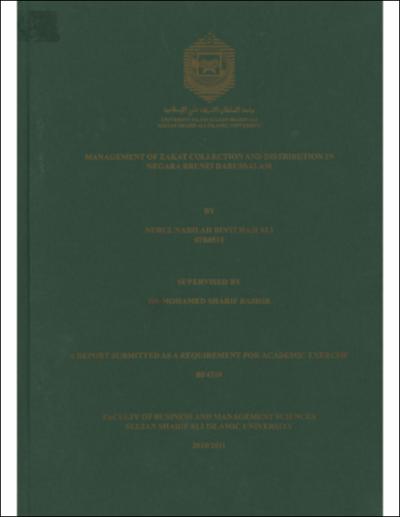Management of Zakat Collection and Distribution in Negara Brunei Darussalam
Abstract
Zakat is one among the five pillar of Islam that plays a very important roles in the life of Muslims, especially due to its ‘take and give’ nature in the relationship among people. Zakat is as important as prayers as it is indicated in the Quran that often mentioned the instruction of prayers followed directly by the instruction of Zakat. Zakat involves a significant amount of money, accumulated from the zakat prayers and to be distributed to the zakat recipients. In Brunei Darussalam there are only six asnaf available that is: Fakir, Miskin, Amil, Muallaf, Ibnu Sabil and al- Gharimin. It involves the transfer of wealth from the rich to the poor. The main objective of zakat is to achieve equitable distribution of income in the society so that the income gap can be narrowed. The management of zakat in terms of collecting and distributing needs improvement. They need to be given more power in managing the funds and also reaching people who needed their help. If it is to be dine, the staff will be motivated and work faster, efficient and effective. Moreover, the zakat institution (Brunei Islamic Religious Council) has to make sure the receivers are really entitled to receive zakat funds. Hence, it is the duty of Brunei Islamic Religious Council to ensure that every zakat dollar is well spent. Therefore, it is important to do a thorough study on the management on zakat collection and distribution in Negara Brunei Darussalam.
Collections
- BACHELOR (FIEF) [25]


